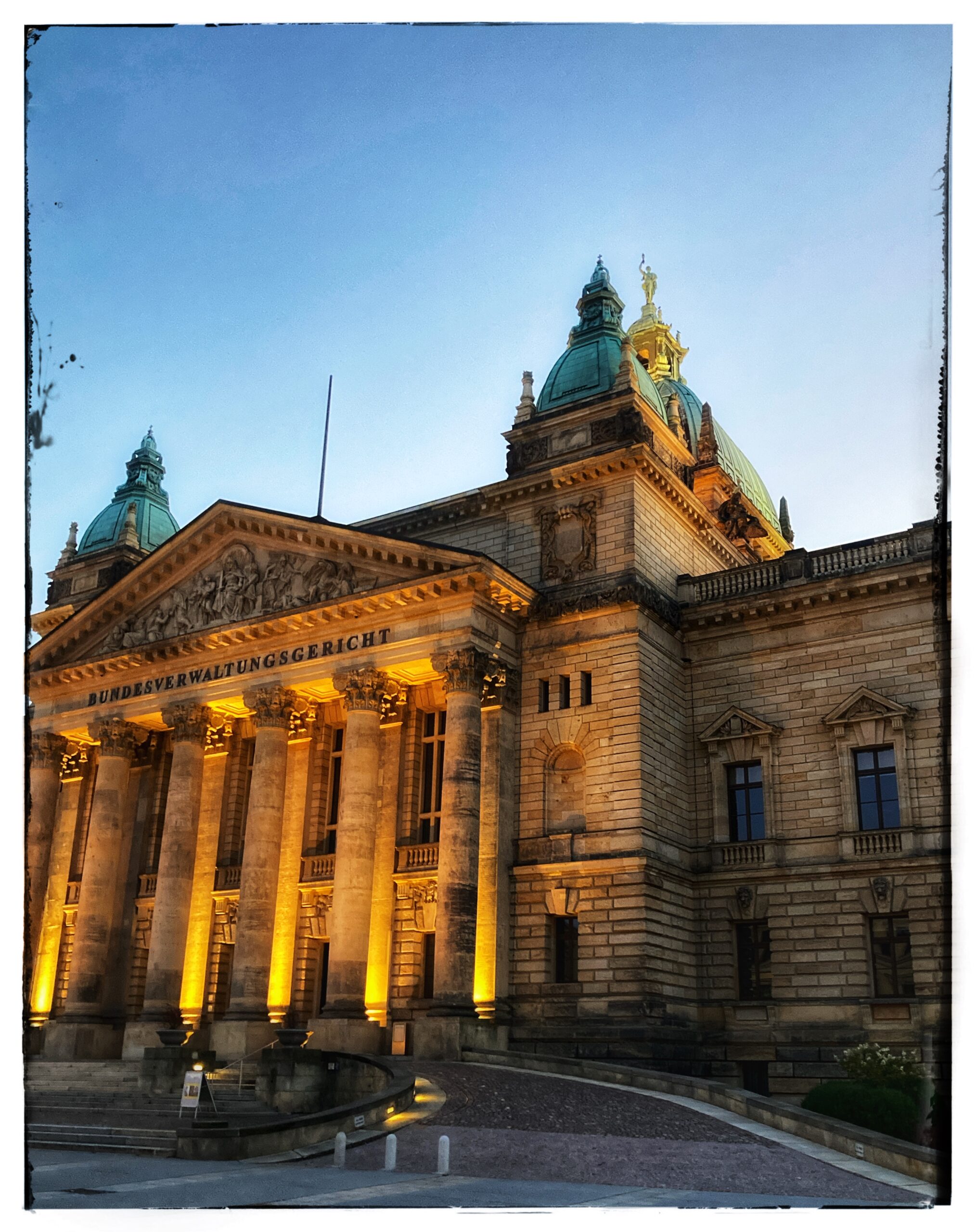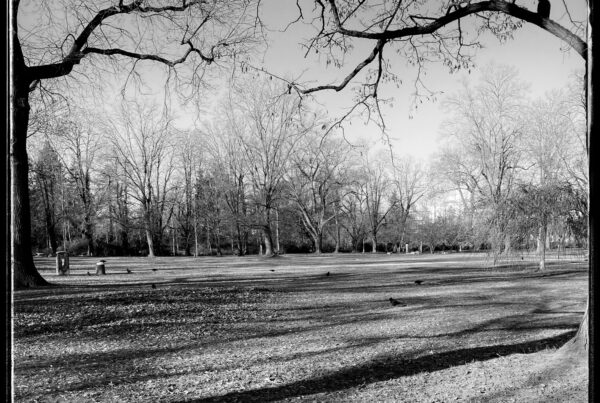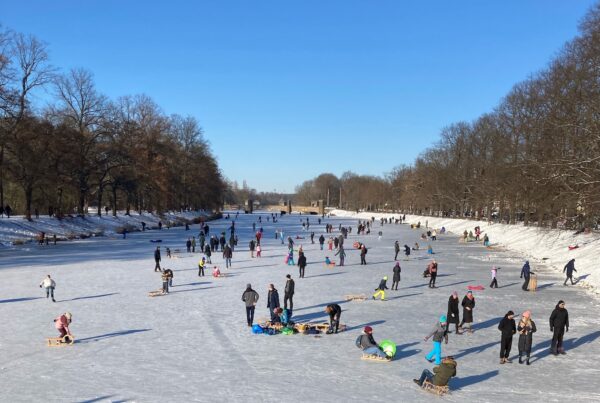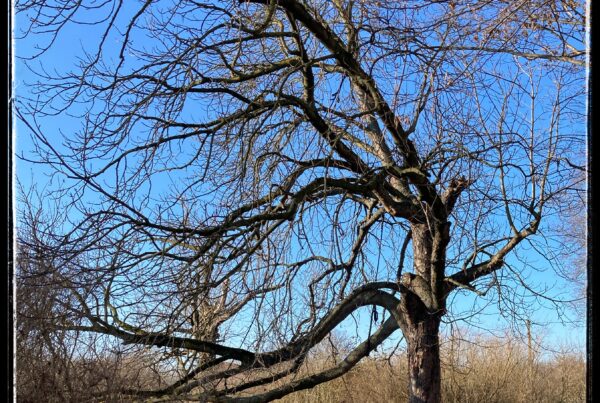
We’re off to the showers — The Mathematician, Bugbear, Punch, and I. The beauty of friendship is being able to spend intimate time together, in this case looking at each other’s naked desire through the steam of a hot garlic naan. Or it would have been if the former 19th Century place-for-buffing-up-the-poor-turned-restaurant wasn’t fully booked for a venue.
“Damn,” we all say, in various tones of disappointment.
“I was looking forward to some Indian food,” says The Mathematician.
“Food that’s actually spicy,”(*) I add, making myself just a little bit hungrier. “Plan B?”
The “B” plan is anywhere nearby that serves food (half-decent’s a plus). We pull out our phones and search. It’s Bugbear who scores the first hit — a Biergarten five minute’s walk away. (So many Bs — it must be a sign.)
And so it is we leave our normal patch, four unwitting participants in a psychogeographical dérive.
There’s a sign outside the Biergarten advertising bands.
There’s a stage inside, which we sit behind.
There’s a small menu on the table and a large queue at the bar. This must mean the food’s worth waiting for(**). We order.
The bands play from 7pm. They’re good. The second one’s gooder — they’ve a double bass, guitar, and jazz flute. (Jazz flute! Be still, my beating heart.) The singing’s smooth — enchanting — and the tinkle of the tambourine marks one of those “Hey, lucky we found this place!” moments. We realise what we’d have missed had chance not shoved us sidelong into Connewitz.
An ocular orgasm ensues.
The next morning I walk back alone from the main train station, The Mathematician on her way to Vienna. When I pass St Nicolas Church (patron saint of travellers), the bells begin to toll. It fills the city centre with rich, warm sound, and as the faithful (and tourists) are drawn to the doors, I’m lifted to scenes of the medieval past. The bells have been ringing here eight centuries long, over sweet hay and shit, knight and knave. I vibrate as I make my way through the square.
Here’s a man not answering the call. He’s lying on a bench in the Lennéanlage park, two black tarpaulins pulled around it to make a tent. His back’s to me as I pass, to the chimes and the city at large.
In contrast to this is a man in a dark t-shirt and shorts, athletic looking, trailing a dog.
The dog sits down.
No amount of coaxing seems to work, so the man tries a bit of sports psychology. “Come on,” he says, enthusiastically, and starts running. Soon the line grows taut. The dog has no interest in exertion. What it does have an interest in is the number 11 tram that’s just arrived. It stares at it fixedly, to its owner’s dismay. I can’t help but laugh.
I cross the road by the abandoned underground bowling alley and pass two men passing words to each other in something Slavic-sounding. They’ve both a beer bottle to hand. One picks something up off the ground, inspects it, and throws it away. It makes a tinkling sound as it bounces on the concrete.
A little farther on, by Wilhelm-Leuschner Platz, I find a man lying on the ground. He has a few bags gathered about him and is covered by a dirty sheet, which he pulls up to his neck. When I draw close, he leans up and bawls something, also Slavic-sounding. Is he shouting at me or those other guys? I walk on.
Crossing the road by the police station, I glance down Dimitroffstraße at the fine yellow building with the tower — more banker’s than wizard’s, with its black tented roof and gold geometric patterning. (Maybe wizard’s?) I’m drawn to it, so I head down a street I hadn’t intended and bathe in its Greppiner Klinker glory. (Seems I’ve a thing for Hugo Licht’s work.)
At the end of the road, the foreplay’s vorbei when I set eyes on the Bundesverwaltungsgericht (the Federal Administrative Court). An ocular orgasm ensues. Look at that Italian renaissance styling! Look at those columns and domes! Once more, I follow my eyes and am soon past the Harkort traffic to the sweeter airs of birdsong. The open square captures the stone-notes of a Leipzig Sunday. Well, if I’m walking this way …
I pass an old policeman keeping guard outside the US embassy. He looks at me, bored, as he patrols. There’s no one else about, save a pigeon who’s taken a liking to his guardhouse.
I’ve every intention of staying the course, of walking west till I reach Clara Zetkin, but then, on the corner of Grassi, I hear a cheeky piano. It tugs at my ears and I follow.
I’m soon standing across from the doors of the HMT (the University of Music and Theatre), listening. Smiling. Folk arrive in ones and twos with cellos and flutes, a violin. I’m amused that more people answer this call than the one from St Nic’s tower.
A security van pulls up. A guy gets out, leaving the engine running, and walks in my direction. He’s carrying an armoured case. He looks me over, much like the policeman before and for just as long, then walks over to the parking meter. He opens it up, and empties it out. There’s a hiss of silver shingle. As the flow slows, he gives the container a few shakes — pub urinal style — to get the last few drops, then buttons it shut.
He leaves.
A piccolo joins the piano.
I stand there long enough to see the shadows move. I check my phone. Oh, my favourite café’s about to open. Well, seeing as I’m nearby, it’d be rude not to. I hitch a lift alongside a passing couple, their small baby chirping in its pram, and turn off past great 19th century works of law and learning.
Soon I’m standing in front of Sehnsucht.
“Coffee?” he smiles.
“I’d love one.”
—
(*) Many Indian restaurants in Germany, and indeed many Germans, seem rather indifferent to spice of the burning (or even bemusing) variety.
(**) In the UK, this just means the food’s cheap.



